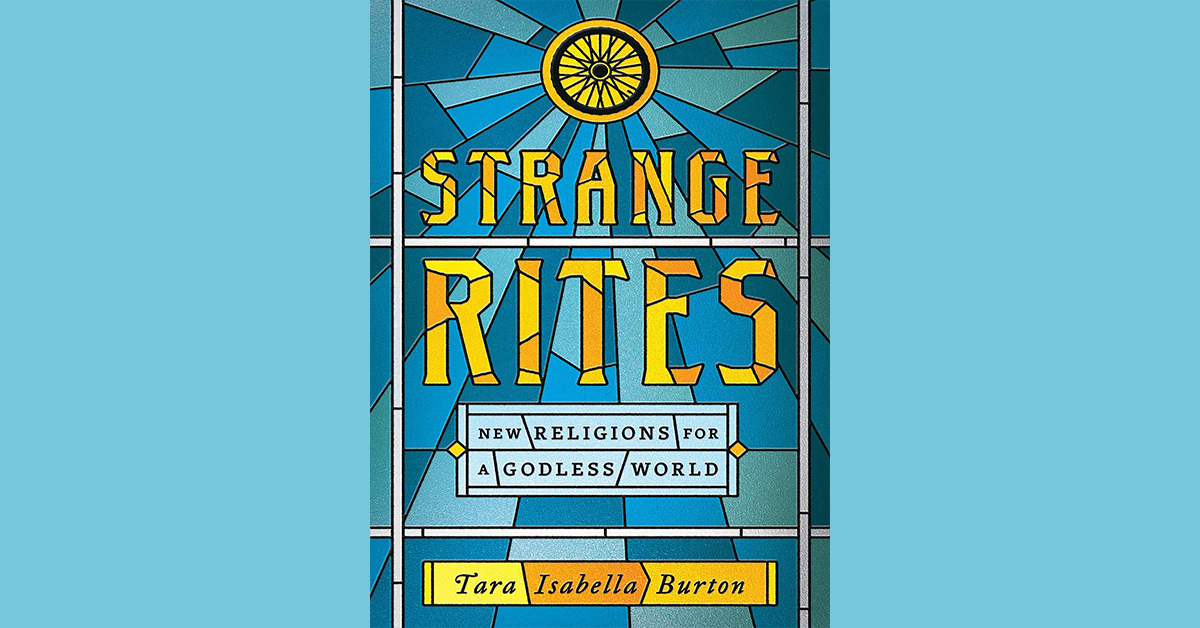Dec 24, 2021 By: yunews

Tara Isabella Burton | Public Affairs | 2020
Reviewed by Rabbi Dr. Stu Halpern
Americans have long enjoyed remixing religion. Thomas Jefferson notoriously cut out the miracles and mentions of Jesus’ divinity, a practice that recently received its own full-length treatment. As Tara Isabella Burton writes in her Strange Rites: New Religions for a Godless World, contemporary America has seen a simultaneous drop in institutional religious affiliation and a rise of curated, à la carte spirituality. While the Nones (adults who say they have no religion) have become the largest and fastest-growing religious demographic in the United States, people have turned to other places for the sustenance religion used to provide. As Burton argues, “the Internet and consumer capitalism alike have produced experientially satiating substitutes—many, though not all of them, poor—for well-developed ethical, moral, and metaphysical systems.” From Sleep No More, an experiential Shakespearean production, to Jediism (which, in England, outnumbers Judaism), a worshipful fanhood has sprung up around unexpected, secular collectives. Even when traditional religion is invoked and practiced, its adherents feel less bound by past expectations, rules, and exclusivism. Former NBA player Joakim Noah, a spiritually fluid searcher, as Burton notes, wears a Christian crucifix, Muslim prayer beads, and Tibetan Buddhist stones, and has told the media, “I’m a little bit of everything.” Bespoke religious identities have abounded, even within conventional faith communities. As one scholar told Burton, “In an Internet-defined generation, we're used to finding our own sources of information and mixing it together with eight different perspectives. We want to contribute in the comments section. We want to engage it in a more discursive way.” Taking a long view, Burton notes that Americans have been syncretic with their beliefs since their earliest days. The colonies were full of Christians who practiced fortune-telling, astrology, folk medicine, and witchcraft. It’s not a far leap to today's SoulCycle faithful, who worship in the synagogue and utilize a meditation app on their iPhone. The spirituality-through-self-care mentality is both a conservative and liberal phenomenon. Left-leaning websites publish stories like “The Rise of Donald Trump Demands We Embrace a Harder Kind of Self-Care,” and modern occultists seek to offer spiritual, structural, and social codes for “resistance.” Meanwhile, conservative thinkers like Jordan Peterson advocate a more confident manhood, which for some adherents seeps into misogyny and obsession with a “brute Darwinism.” Burton sees numerous ills emerging from this replacement religion. Whether it’s the violence expressed on 4chan, the proliferation of college “safe spaces,” which she describes as “quasi-sacred” places where “social justice’s narratives of self, society, and truth reign supreme,” anti-aging movements, or Harry Potter obsessives having a crisis of faith when J.K. Rowling expresses unpopular opinions on social or political issues, the battle to bring order to chaos in new ways has led to many strange, sometimes dangerous, and often less-than-satisfying solutions. Are any of these ever-proliferating soul-affirming activities and remixed practices more than flashes in the proverbial pan? Will Americans find their way back to traditional faiths? These are questions only God can answer. To read more Straus Center book reviews, click here. You can learn more about the Straus Center and sign up for our newsletter here. Be sure to also like us on Facebook, follow us on Twitter and Instagram and connect with us on LinkedIn.
